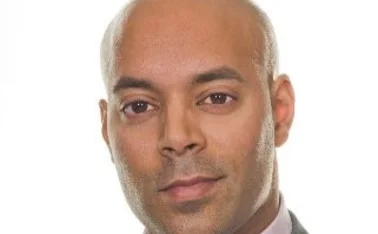
Blog: Event cancellation - the role of the loss adjuster

Last month’s torrential rain that saw hundreds of homes and businesses in Yorkshire and the Midlands devastated by flood water served as a stark reminder of the destructive impact that the weather can have. But this can also have a severe impact on sporting, music and other public events, writes Alex Whittaker, senior adjuster at Hyperion Adjusters, part of Questgates.
This area of claims generally goes about its business unnoticed, however, the financial ramifications of postponement or cancellation on the organisers, venues and the many businesses involved can be huge so managing these cases requires a unique skill set.
Cast your mind back to March 2018 when the ‘Beast from the East‘ gripped the UK in heavy snowfall and there were amber weather warnings across the UK. This forced the necessary cancellation of indoor trade shows, the closure of theatres, the rescheduling of concerts and the postponement of sporting events.
With each affected event, there is no straightforward immediate decision made on whether an event is immediately cancelled or postponed to a later date. With exhibitions and theatre productions, invariably the performances are not rescheduled as venue availability is so limited. Key speakers, actors, delegates and the like cannot easily arrange new dates given other existing commitments – although strangely enough, bands or comedians on tour tend to have more flexibility with respect to replaying affected dates.
Sporting events are a different kettle of fish. Some flexibility exists inside domestic seasons for matches to be postponed and replayed. However, as seen at the recent Rugby World Cup in Japan, relocating teams, spectators and broadcast production to alternative cities at short notice when faced with the threat posed by a super typhoon can be all but impossible on the affected parties.
Closer to home, there were record levels of rain throughout June and August plus a nationwide weather warning over a weekend when numerous large scale music festivals were taking place. The risk posed by heavy winds to these events impacts all of the production equipment such as video screens, main stages and big tops. When a festival is forced to cancel because of winds, it is virtually impossible to reschedule due to the unavailability of the venue and the existing touring commitments of the bands involved. Further challenges are posed by staff and key production crew being unavailable due to other events.
Loss adjusters managing these types of claims have to act more like risk managers as they guide event organisers through the process of mitigating the loss, and they often have to become interventional in the reschedule of the event.
Mitigating the policyholder’s losses on their budgeted expenses is an essential component of the loss adjuster’s role. For example, artist contracts tend to have different variations on the Force Majeure clause and thus savings against the original budget for artist performance fees can be mitigated.
Advising the policyholder to operate as if they are uninsured and negotiate with key suppliers, who invariably are able to reduce their fees as cancellation prior to opening or abandonment half way through the event, can result in a reduction in staging costs. Sometimes transferring booked artists into alternative premises so as to mitigate the expense and generate revenue can help offset the unrecoverable expenses for the original cancelled event. Other negotiations with suppliers include offloading salvageable stock such as merchandise so as to mitigate the policyholder’s unrecoverable costs.
Large property claims can arise from the destruction of hired-in equipment such as generators, so working with independent experts to ascertain the extent of damage and whether repair or replacement is the most cost effective way to proceed can be another task for the loss adjuster involved.
It’s a fascinating area as each case presents a unique story. While processes and technology underpin the management of each one, it’s down to the skill and expertise of the loss adjuster to deliver a successful outcome for all stakeholders.
Only users who have a paid subscription or are part of a corporate subscription are able to print or copy content.
To access these options, along with all other subscription benefits, please contact info@postonline.co.uk or view our subscription options here: http://subscriptions.postonline.co.uk/subscribe
You are currently unable to print this content. Please contact info@postonline.co.uk to find out more.
You are currently unable to copy this content. Please contact info@postonline.co.uk to find out more.
Copyright Infopro Digital Limited. All rights reserved.
You may share this content using our article tools. Printing this content is for the sole use of the Authorised User (named subscriber), as outlined in our terms and conditions - https://www.infopro-insight.com/terms-conditions/insight-subscriptions/
If you would like to purchase additional rights please email info@postonline.co.uk
Copyright Infopro Digital Limited. All rights reserved.
You may share this content using our article tools. Copying this content is for the sole use of the Authorised User (named subscriber), as outlined in our terms and conditions - https://www.infopro-insight.com/terms-conditions/insight-subscriptions/
If you would like to purchase additional rights please email info@postonline.co.uk
Most read
- Movers and shakers who made Insurance Post’s Power List 2024 revealed
- Insurance’s wealthiest figures revealed
- Winslow continues Direct Line management overhaul








